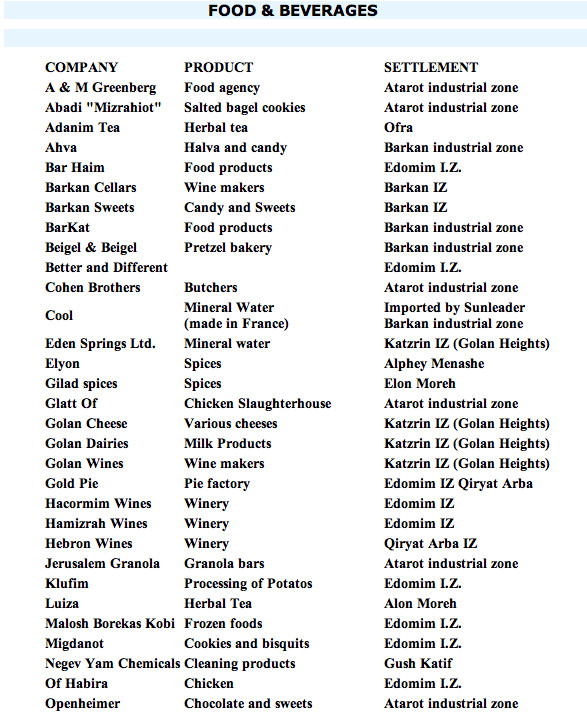Buying Israeli-made products is encouraged
European Union tightens labeling restrictions on settlement items
Two days before the terrorist attacks occurred in Paris on Nov. 13, the European Commission issued what they called an interpretative notice to clarify specific portions of already existing legislation regarding products made in Israel.
Food, beverages, gas equipment, furniture, cosmetics, cleaning products, kitchen utensils and several other items not made in the Israel that constituted the pre-1967 borders, the current settlements in the West Bank or Golan Heights are not permitted to ne marked Made in Israel. Those items must be labeled Made in the West Bank or the Golan Heights.
EU officials also said that products from the settlements would be marked Golan Heights (Israeli Settlement). They said this is also no different from the labeling the United Kingdom has done since 2009 as it differentiates between West Bank produce made in Israeli settlements and West Bank produce made by the Palestinians. Denmark in 2013 and Belgium last year implemented similar guidelines. Officials said that using the Made in Israel label for products made in Israeli settlements is misleading.
“Indication of origin of goods produced in the European Union or entering the EU internal market is an essential part of the EU’s consumer policy,” Valdis Dombrovkis, the vice president of the European Commission, said at a Nov. 11 press conference. “While the implementation of these rules is in the hands of national enforcement authorities, the Commission is providing guidance to EU member states and economic operators to ensure the uniform application of the rules concerning indication of origin of Israeli settlement products.”
The Religious Zionists of America (RZA), a pro-Israel advocacy organization, believes that this rededication to these labeling practices could induce a consumer boycott of items not explicitly labeled Made in Israel.
RZA compiled a list of companies, what product they make and from where it comes from. They are asking consumers to seek out these items and purchase them, and requests that merchants to stock them on their store shelves. “The RZA is encouraging merchants to order the products,” Oliner said. “The EU action is being a bit anti-Semitic.”
EU official said that they do not support any form of a boycott or sanctions against Israel nor does it intend to impose a boycott on Israeli exports from the settlements.
“The EU has a privileged trading relationship with Israel, which is based on the Association Agreement,” Dombrovkis said. “Under this agreement, products originating in Israel within its internationally recognized borders benefit from preferential tariff treatment upon their entry into the EU. This situation should not change.”






